Coronavirus: Restoring hope in the hardest-hit community
- Published
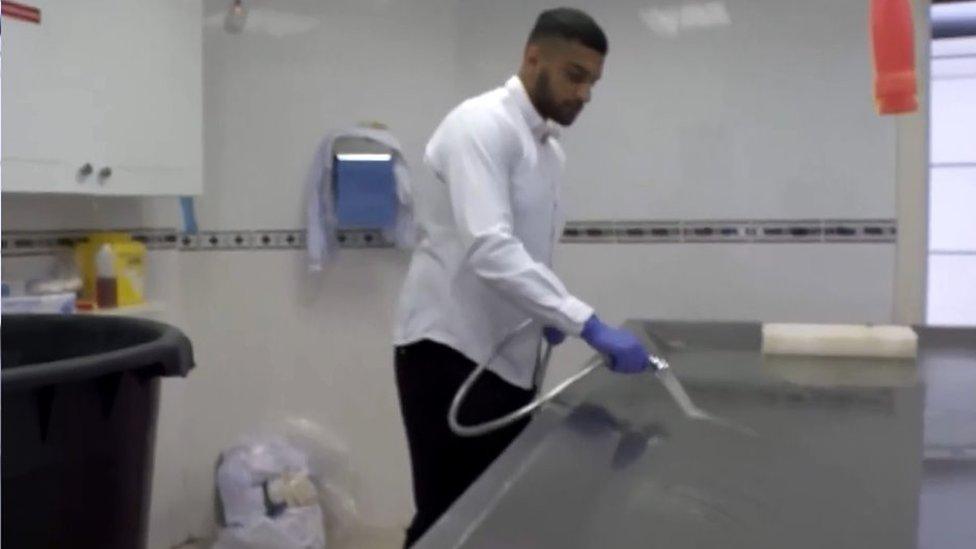
Volunteers were needed to help prepare bodies for burial
Newham in east London has the highest proportion of deaths from coronavirus in England and Wales. BBC News looks at why, and what it means for the community.
For much of April, Ghouse Fazaluddin was consumed by one thought: "We couldn't just stand back and watch our dead be buried in mass graves."
Using his background as a telecoms project manager, he set to work.
A WhatsApp group was created, and volunteers from the Jamia mosque in Newham, where Mr Fazaluddin is a trustee, were recruited.
The task in hand was essential, but grim.
There had been so many deaths that a backlog of bodies had built up and people were required to prepare each person for burial.
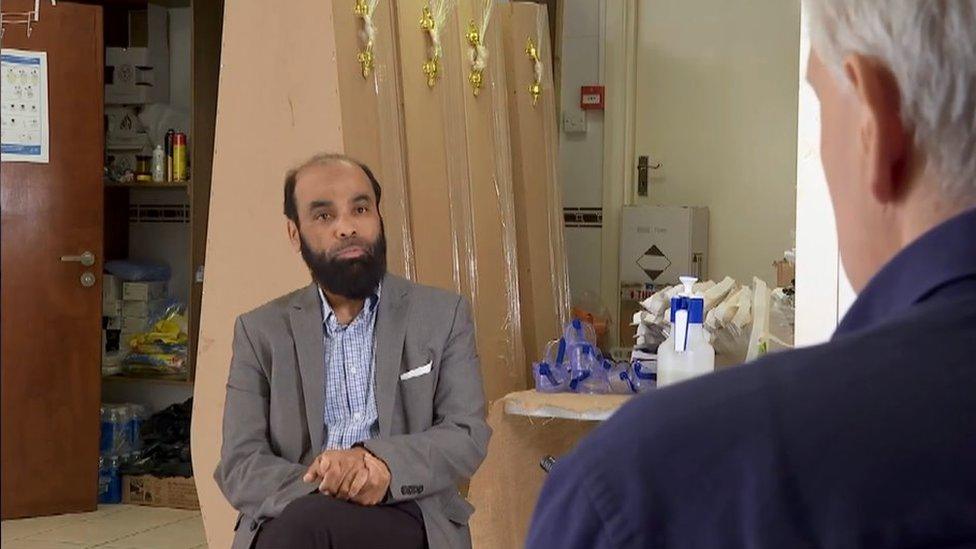
Ghouse Fazaluddin co-ordinated three teams of volunteers
A stream of people came forward, and over the course of 10 days, they cleansed and prayed for 32 people.
"The most important thing for me is how the community has come together," says Mr Fazaluddin.
"The common goal was, we cannot forget our deceased, we cannot just leave them to be buried without the ritual washing that takes place, and that people's dignity, the dignity of the deceased, was preserved."
'A little bit scared'
To facilitate the process, a side room to the mosque was demarcated, with volunteers in personal protective equipment, sourced from builders' merchants, responsible for handling the bodies.
Adam Hussain, a 23-year-old furloughed maintenance engineer, felt a responsibility to step up.
"At first I was a little bit scared to volunteer, but I just couldn't stand back," he says.
"I thought, I'm doing this for the community, doing it for their family, and I just felt happy."
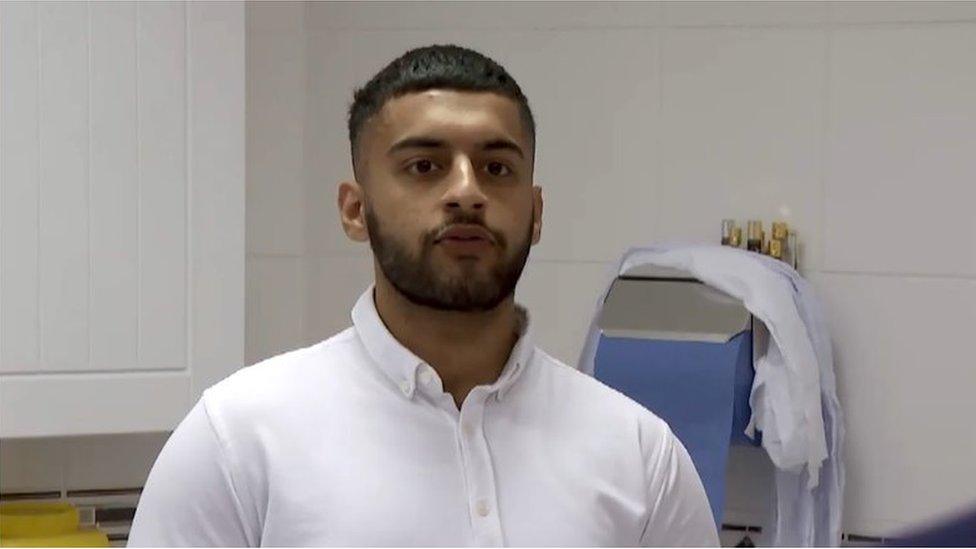
Adam Hussain was one of the volunteers
Covid-19 has preyed on Newham like nowhere else.
Data released by the Office for National Statistics , external shows the east London borough has suffered the highest proportion of deaths from the disease in England and Wales.
While there is local concern that some people did not take the virus seriously at first and continued mixing, a combination of deprivation and ethnicity has allowed the disease to exploit the area's mainly black and Asian population.
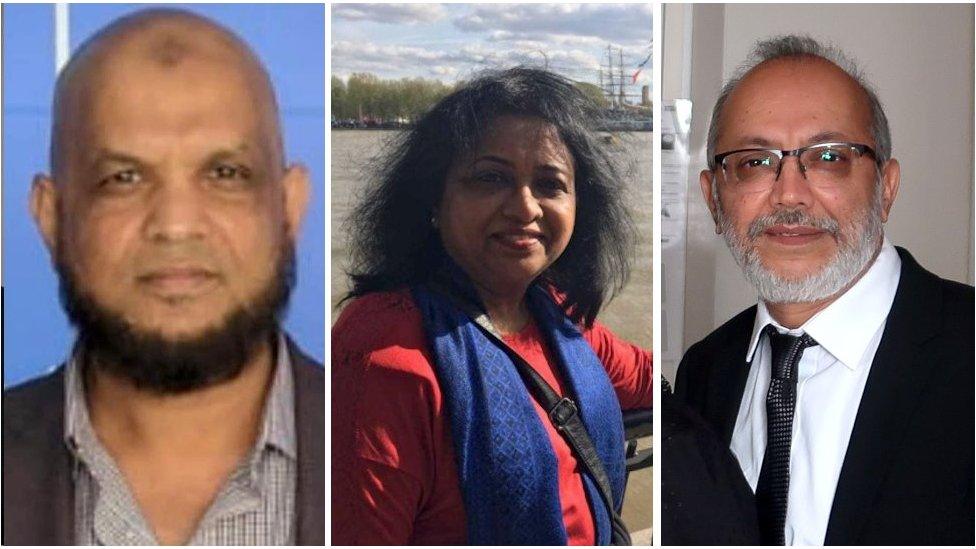
Anwar Hussain Oli, Dr Louisa Rajakumari and Dr Yusuf Patel were among those who died
The victims have included key workers such as GP, Dr Yusuf Patel, teacher Dr Louisa Rajakumari, and Anwar Hussain Oli, one of several taxi drivers who've died, as well as at least nine residents of the Bakers Court care home in Little Ilford Lane.
"The past few weeks have been really depressing," says Ayesha Chowdhury, a Labour councillor in Newham who knows around 15 people who've died from coronavirus, many of them Bangladeshis.
"When they pass away, the community cannot participate in the funeral, they cannot visit the family so everything is completely shocking.
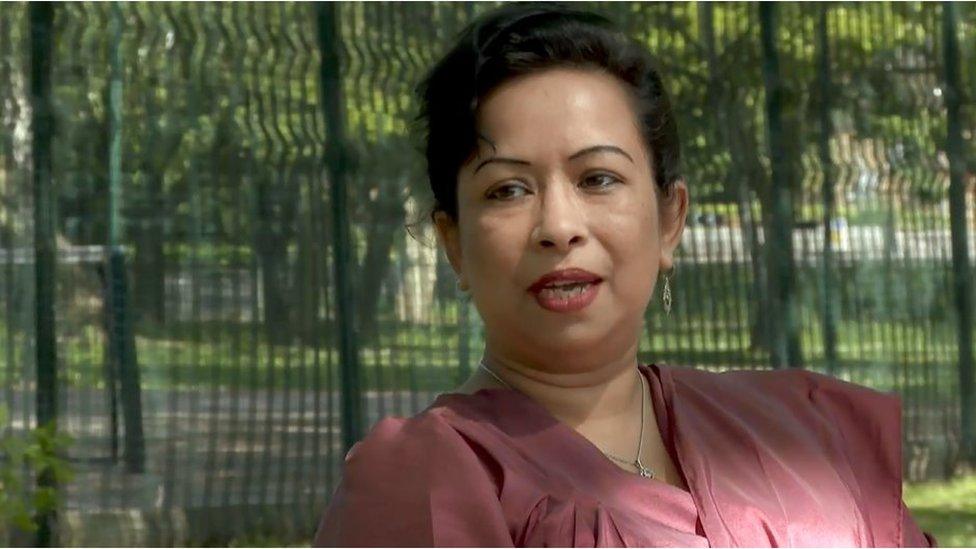
Ayesha Chowdhury knows at least 15 people who have died of the virus
"Besides dealing with the sadness, they also have to think about the finances of a funeral."
Newham has long been recognised as one of the poorest areas of England, the 2012 Olympic Park was located there in an effort to regenerate the area.
That has brought benefits to some parts, but long-standing high levels of both overcrowding and underlying health conditions, such as cardiovascular disease and asthma, have remained.
Despite its problems, the government has cut around £6m, in real terms, from Newham's public health budget since 2016.
Second wave?
The recent ONS data, which showed people in poor areas dying at twice the rate seen in more affluent districts, mirrors earlier research on the impact of pandemics.
A 2012 paper, looking at the much smaller consequences of the 2009 swine flu outbreak in England, found deaths were three times higher in poorer communities and recommended socio-economic disparities be part of future pandemic planning.
Researchers say there is little evidence that happened.
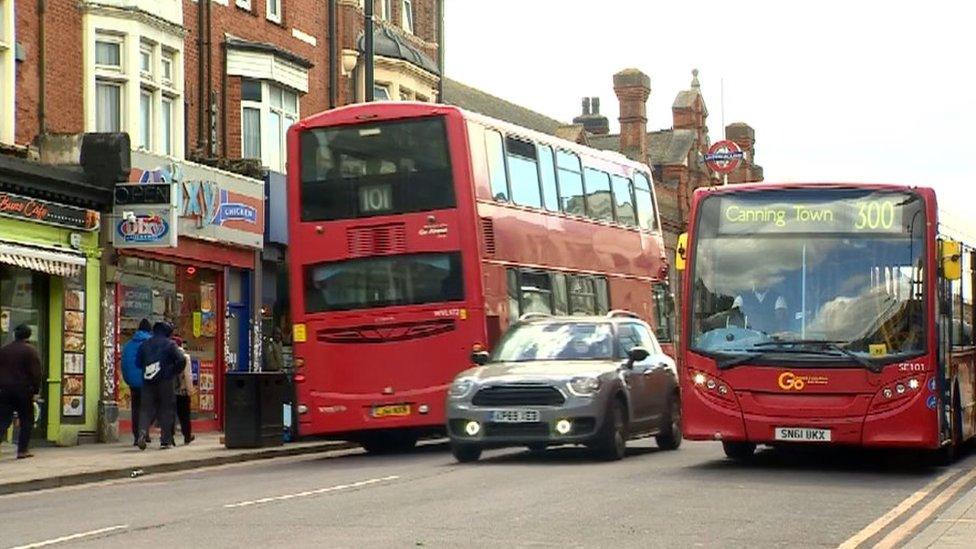
People in poorer areas like Newham are dying at twice the rate of people in richer areas, official figures show
"This is not an equalising virus. This is a virus with a disproportionate effect on poor communities," says Rokhsana Fiaz, Labour Mayor of Newham.
"If you want to avoid a second wave, if you want to minimise deaths, we've got to be given the resources and flexibility to spend at a local level.
"Top down, command and control, will not work in light of the evidence we have."
Public health experts agree that a targeted approach will be needed as the disease develops.
Jonathan Pearson-Stuttard, a public health researcher at Imperial College London, says communities deemed to be most at risk from Covid-19 should get priority whenever a vaccine is developed.
"Once those most in need, such as health and care workers are vaccinated, it's very reasonable to assume that those most at risk would be next in line to receive the vaccine."
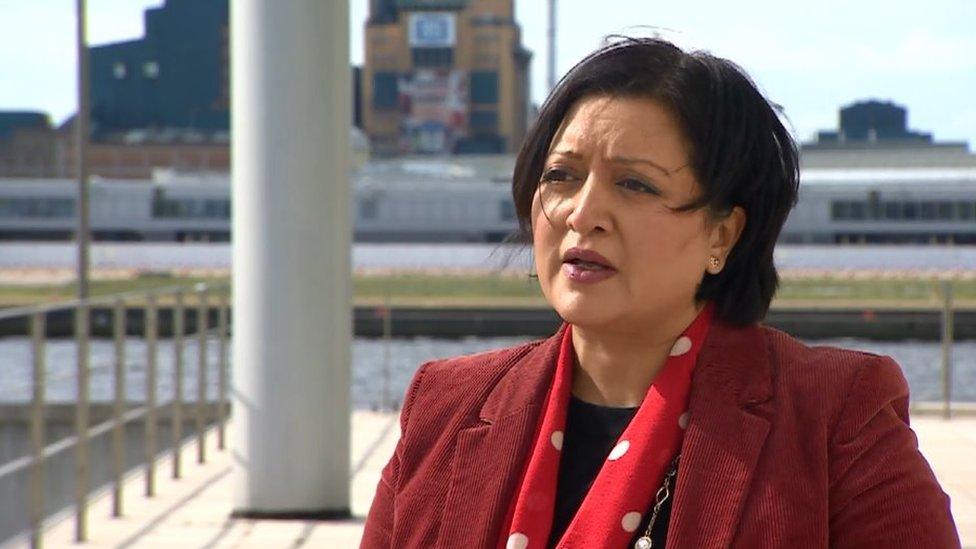
This virus has a disproportionate effect on poorer communities, says Newham's mayor
In Newham, the community that has lived through this crisis, must now rebuild the borough.
At the East London Science School, they have been hit hard - about 40 staff members have had symptoms, at least 10 pupils have lost relatives and one staff member is caring for two children who have been orphaned after both their parents died of Covid-19.
For head teacher, David Perks, bringing hope means restoring normality.
"Being serious about the education we offer gives them a way of seeing a future for themselves," he says.
"We can't obviously turn things back, but the fact that they can see a future is the best thing we can give them."